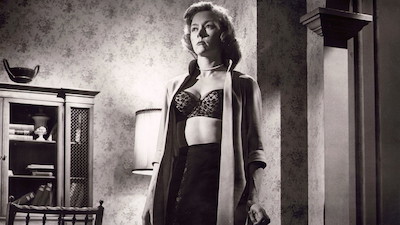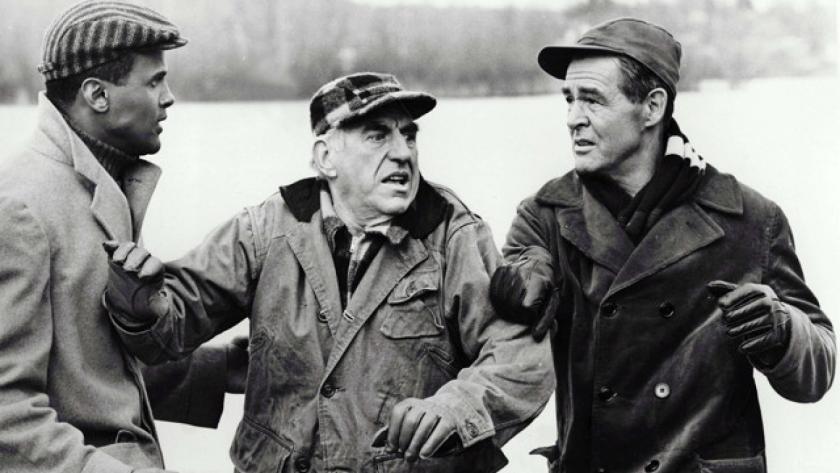Robert Wise directed the 1959 bank heist thriller Odds Against Tomorrow after the classic film noir cycle had ended, but it's an exemplary noir nonetheless. In its day it was an important transitional work – a race-relations allegory, less well-known or hopeful than Stanley Kramer's 1958 The Defiant Ones, that played its part in the burgeoning Civil Rights movement.
Harry Belafonte initiated the project for his production company and hired the blacklisted screenwriter Abraham Polonsky to adapt the novel by William P. McGivern (author, too, of The Big Heat). The loot deperately sought by the Mob debtor Johnny Ingram (Belafonte), the volatile Oklahoman ex-con Earl Slater (Robert Ryan), and Dave Burke (Ed Begley), the disgraced former cop who masterminds the heist, is a MacGuffin for Polonsky's bleak analysis of the untenability of racism in a functioning society.
 The trio travels from Manhattan to an upstate New York town with a vulnerable bank. Their mission is jeopardised by Earl and Johnny's mutual hatred. Ryan is typically riveting as a gnarled loser whose loathing is really self-directed; Earl is a more complex character, though, than Ryan's anti-semitic psycho in Crossfire (1947).
The trio travels from Manhattan to an upstate New York town with a vulnerable bank. Their mission is jeopardised by Earl and Johnny's mutual hatred. Ryan is typically riveting as a gnarled loser whose loathing is really self-directed; Earl is a more complex character, though, than Ryan's anti-semitic psycho in Crossfire (1947).
Ryan himself was a liberal Democrat, pacifist, and ardent Civil Rights campaigner. In an especially enlightening 2009 interview with the film scholar Foster Hirsch, which is included in the BFI's dual-format disc, Belafonte recalls introducing his great co-star to Martin Luther King, Jr.
Wise grounds the film in Johnny and Earl's daily lives. Johnny is a jazz singer unfaithful to his wife (Kim Hamilton), who is integrating into white society for the sake of their child. Earl is a loser dependent on his hardworking girlfriend (Shelley Winters). Sent by her to pick up her dry cleaning – a rare case of a domestic chore obtruding into a film noir – he has a violent altercation with a cocky young soldier in a bar. He also defiantly screws a bored housewife after she gets him to tell her how he felt when he killed a man; in three short scenes, Gloria Grahame (pictured above) made this slummocky vampire unforgettable, as only she could.
Joseph Brun's beautiful location cinematography, memorable for its abbreviated tracking shots, adds a documentary flavour to a movie otherwise characterised by night-for-night external sequences and interiors stencilled by venetian-blind shadows. John Lewis's jazz score, ironically louche, intensifies the fatalistic mood. The other extras include a video commentary by Film London's Adrian Wootton and NFT interviews with Ryan (audio only) from 1969 and Wise from 1995.













Add comment